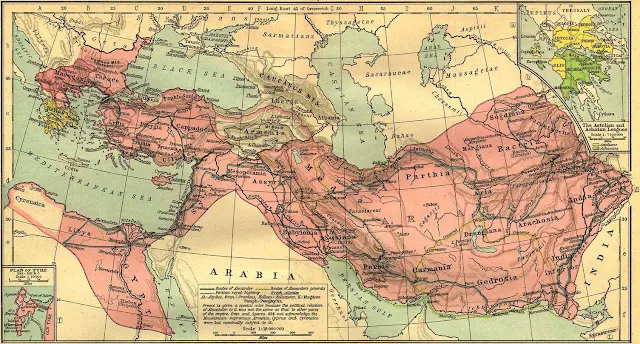The History of Greece
A Legacy of Civilization and Global Influence
Introduction
Greece, often referred to as the cradle of Western civilization, has had a profound impact on the world through its contributions to philosophy, politics, science, art, and warfare. Its history is marked by periods of remarkable growth, cultural flourishing, and devastating decline. This article provides a detailed account of Greece’s historical trajectory, outlining the reasons behind its rise and fall during key phases of its development.
1. The Minoan and Mycenaean Civilizations (c. 3000–1100 BCE)
The Minoan Civilization (c. 3000–1450 BCE)
The Minoan civilization, based on the island of Crete, was one of the earliest advanced societies in Europe. It is best known for its grand palaces, such as Knossos, and its vibrant frescoes, which depict a peaceful and prosperous maritime society.
Achievements: The Minoans developed an extensive trade network, a complex bureaucracy, and a unique writing system (Linear A, still undeciphered).
Decline: Likely due to a combination of natural disasters (the Thera eruption around 1600 BCE) and Mycenaean invasions.
The Mycenaean Civilization (c. 1600–1100 BCE)
The Mycenaeans, influenced by Minoan culture, established powerful city-states such as Mycenae and Pylos.
Achievements: They adapted Minoan script into Linear B (the earliest recorded form of Greek), built fortified palaces, and engaged in extensive trade and warfare.
Decline: Internal strife, economic collapse, and external invasions (Dorian invasion) led to the Greek Dark Ages (c. 1100–800 BCE).
2. The Archaic Period (c. 800–500 BCE): The Birth of City-States
Following the Dark Ages, Greece saw the rise of city-states (poleis), most notably Athens and Sparta.
Political Developments: The introduction of the polis system fostered political experimentation, including oligarchies, tyrannies, and eventually democracy.
Economic Growth: Colonization expanded Greek influence across the Mediterranean, spreading trade and culture.
Cultural Flourishing: The Homeric epics, Olympic Games, and early philosophical thought emerged.
3. The Classical Period (c. 500–323 BCE): The Golden Age of Greece
Persian Wars (499–449 BCE)
Greece’s victory over Persia in the Greco-Persian Wars secured its independence and set the stage for the rise of Athens.
Battle of Marathon (490 BCE) and Battle of Salamis (480 BCE) showcased Greek military ingenuity.
Athenian Hegemony and the Golden Age (c. 460–431 BCE)
Pericles’ Leadership: Athens became a cultural and intellectual hub, fostering democracy, philosophy (Socrates, Plato, Aristotle), drama, and architecture (the Parthenon).
Delian League: Athenian dominance over its allies led to tensions with Sparta.
The Peloponnesian War (431–404 BCE): The Fall of Athens
Causes: Athens’ imperial ambitions clashed with Sparta’s conservative policies.
Outcome: Sparta, aided by Persia, defeated Athens, leading to economic and political instability in Greece.
4. The Hellenistic Period (323–31 BCE): Greek Influence Expands
Alexander the Great’s Empire (336–323 BCE)
Conquests: Alexander unified Greece and expanded its influence into Persia, Egypt, and India.
Cultural Impact: The Hellenistic world blended Greek, Egyptian, and Persian traditions, fostering scientific and artistic advancements.
Decline: After Alexander’s death, his empire fragmented into warring successor states (the Diadochi Wars).
5. The Roman and Byzantine Eras (146 BCE–1453 CE)
Greece Under Roman Rule (146 BCE–395 CE)
 |
| Fountain of Peirene or the Upper Pirene spring, located on Acrocorinth (Acropolis),Greeks and Romans considered it a sacred location where the great Pegasus was tamed by a local hero. |
Integration: Greece became a vital part of the Roman Empire, influencing Roman art, literature, and philosophy.
Decline: Economic stagnation and political unrest weakened Greek cities.
The Byzantine Empire (330–1453 CE)
Constantinople: Founded by Emperor Constantine, it preserved Greek knowledge and Orthodox Christianity.
Final Decline: The 1453 Ottoman conquest ended Byzantine rule, marking a turning point in Greek history.
6. The Ottoman Period and Greek Independence (1453–1830)
Ottoman Rule: Achievements and Failures
Achievements:
-
The Ottoman Empire provided a degree of administrative stability in Greece, maintaining basic infrastructure.
-
The Ottomans allowed a level of self-governance for Greek communities through the "millet" system, enabling them to practice their Orthodox Christian faith and manage their internal affairs.
-
Trade flourished in some regions, particularly in coastal cities like Thessaloniki.
Failures:
-
The Ottomans imposed heavy taxes, negatively impacting the local economy and leading to unrest among peasants and merchants.
-
Greeks faced discrimination at times, with little political representation within the Ottoman administration.
-
Frequent uprisings and revolts occurred due to the rise of Greek nationalism and the desire for independence.
-
Economic exploitation and a decline in education led to the deterioration of some aspects of Greek cultural and intellectual life during this period.
-
Greek War of Independence (1821–1830): Inspired by nationalism and European support, Greece achieved independence in 1830.
7. Modern Greece (1830–Present): Challenges and Achievements
19th and 20th Centuries: Greece expanded its territory and survived two world wars.
Recent Developments: Greece faced economic crises in the 21st century but remains a significant European nation with a rich cultural legacy.
Conclusion
Greece’s history is a saga of resilience, innovation, and cultural influence. Its contributions to democracy, philosophy, and the arts continue to shape the modern world.
References
Cartledge, P. (2011). Ancient Greece: A History in Eleven Cities. Oxford University Press.
Kagan, D. (2003). The Peloponnesian War. Viking Press.
Freeman, C. (2016). The Greek Achievement: The Foundation of the Western World. Penguin Books.
Holland, T. (2005). Persian Fire: The First World Empire and the Battle for the West. Little, Brown.
Boardman, J., Griffin, J., & Murray, O. (2001). The Oxford History of Greece & the Hellenistic World. Oxford University Press.
For further information, visit:










No comments